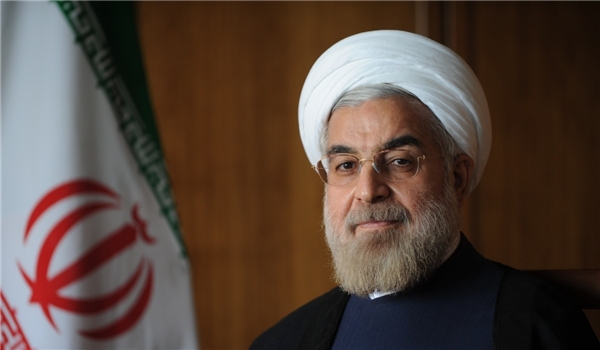
RNA - “The new US administration officials should know that the failed experience of threats and sanctions forced their predecessors to come to the negotiating table. If they prefer to return to those times, Iran will definitely return to a situation much more advanced than the start of the [nuclear] negotiations, not within months and weeks, but in a matter of hours and days,” Rouhani said in a televised speech at the parliament’s open session on Saturday.
Rouhani underlined Iran’s commitment to the nuclear deal, which is known as the Joint Comprehensive Plan of Action (JCPOA), adding that Tehran will follow up and respond to any breach of the deal by other parties.
"Those who seek to go back to the language of threats and sanctions are captives of their past self-made delusions. They merely deprive themselves of the benefits of peace by creating antagonism and phobia,” he said.
“In recent months, the world has clearly witnessed that it is the US, particularly under the presidency of Mr. [Donald] Trump, which is ignoring this international agreement,” the Iranian president said.
Apart from the JCPOA, Trump’s administration has also ignored several other global agreements, showing to its allies that the US is neither a good partner nor a reliable negotiating party, Rouhani pointed out.
Rouhani described the nuclear deal as a “model for peace,” but noted, “The JCPOA is not and will not be the only option for the country.”
The remarks come a few days after Trump said he believed Iran was not in compliance with the nuclear deal, accusing Tehran of not “living up to the spirit” of the "horrible agreement."
This is while the International Atomic Energy Agency (IAEA) has time and again reported that Iran has been abiding by the terms of the nuclear deal.
Despite the IAEA’s reports, Washington has recently approved a series of anti-Iran sanctions. The head of the Iranian task force to monitor the implementation of the deal says the US sanctions have broken the terms of the JCPOA.
Under the JCPOA reached in July 2015, Iran undertook to put limits on its nuclear program in exchange for the termination of nuclear-related sanctions imposed against the Islamic Republic.
The White House is bound by US law to notify Congress of Iran’s compliance with the nuclear deal every 90 days. Congress would then have to continue to withhold certain nuclear sanctions against Iran.
The Trump administration notified Congress of Iran’s compliance for the first time in April.
In July, Trump reluctantly agreed for the second time to verify that Iran was in compliance, based on the recommendation of his national security team and the intelligence community’s analysis.
But the US president then immediately commissioned a group of administration staffers who have no intelligence background to generate a rationale for declaring Iran to be in violation of the deal at the next 90-day review, Foreign Policy reported last month.
Trump told The Wall Street Journal in late July that he expected the “detailed studies” to validate his belief that Iran was “noncompliant” with the JCPOA.
On July 21, Foreign Policy cited a source close to the White House that Trump had previously tasked Secretary of State Rex Tillerson with making a case for decertification of the deal -- which the sources said they failed to do.
“Tillerson did not do this and Trump is infuriated,” said the unnamed source who added, “He can’t trust his secretary of state to do his job, so he is turning to the few White House staffers he trusts the most.”
Trump was frustrated when Tillerson told him that he had no choice, but to confirm that Iran was in compliance, the report said.
It was not only Tillerson who argued to certify the Iran deal. US Defense Secretary James Mattis, National Security Advisor H.R. McMaster, and the chairman of the Joint Chiefs of Staff, Gen. Joseph Dunford, also believed in Tehran's compliance with the agreement.
847/940